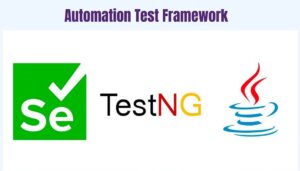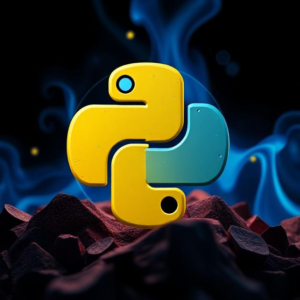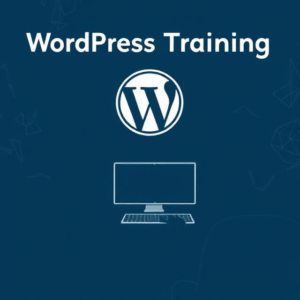Description
Software Testing course. It might vary depending on the specific institution or certification program, but it should generally cover the following key areas:
Duration :120 Hrs

1. Introduction to Software Testing
-
Overview of Software Testing
-
Definition and Importance
-
Quality Assurance vs. Quality Control
-
-
Software Development Life Cycle (SDLC)
-
Waterfall, Agile, V-Model, Spiral, and Iterative Models
-
-
Software Testing Life Cycle (STLC)
2. Testing Fundamentals
-
Types of Software Testing
-
Manual vs. Automated Testing
-
Functional Testing vs. Non-Functional Testing
-
-
Levels of Testing
-
Unit Testing, Integration Testing, System Testing, and Acceptance Testing
-
-
Test Objectives
-
Validation vs. Verification
-
Testing Techniques: Static vs. Dynamic
-
3. Test Design Techniques
-
Black Box Testing
-
Equivalence Partitioning
-
Boundary Value Analysis
-
Decision Table Testing
-
State Transition Testing
-
-
White Box Testing
-
Statement Coverage
-
Branch Coverage
-
Path Coverage
-
-
Grey Box Testing
-
Test Case Design
-
Test Case Writing and Execution
-
Test Data Creation
-
4. Types of Testing
-
Functional Testing
-
Smoke Testing
-
Sanity Testing
-
Regression Testing
-
Retesting
-
-
Non-Functional Testing
-
Performance Testing
-
Load Testing
-
Stress Testing
-
Usability Testing
-
Security Testing
-
-
Other Testing Types
-
Compatibility Testing
-
Installation Testing
-
Localization and Internationalization Testing
-
5. Test Management
-
Test Planning
-
Test Plan Structure
-
Test Strategy and Test Environment Setup
-
-
Test Estimation
-
Techniques for Estimating Test Effort and Time
-
-
Test Execution
-
Manual and Automated Test Execution
-
-
Test Reporting
-
Defect Reporting and Tracking
-
Test Metrics (e.g., defect density, test coverage)
-
6. Bug Lifecycle and Defect Management
-
Bug Life Cycle
-
New, Open, Fixed, Retested, Closed
-
-
Bug Tracking Tools
-
JIRA, Bugzilla, Quality Center, etc.
-
-
Defect Reporting Standards
7. Test Automation
-
Introduction to Test Automation
-
Benefits and Challenges of Automation
-
Tools for Test Automation (Selenium, QTP, Appium, etc.)
-
-
Automation Frameworks
-
Data-Driven, Keyword-Driven, Hybrid Frameworks
-
-
Script Development and Execution
-
Writing Test Scripts
-
Integrating with CI/CD pipelines
-
8. Agile Testing
-
Agile Methodologies
-
Scrum, Kanban, XP (Extreme Programming)
-
-
Agile Testing Practices
-
Test-Driven Development (TDD)
-
Behavior-Driven Development (BDD)
-
Continuous Testing in Agile
-
-
Role of Tester in Agile Teams
-
Collaboration with Developers and Product Owners
-
9. Performance Testing
-
Introduction to Performance Testing
-
Types of Performance Testing: Load, Stress, Endurance, etc.
-
-
Tools for Performance Testing
-
JMeter, LoadRunner, etc.
-
-
Performance Test Metrics
-
Response Time, Throughput, Latency, etc.
-
10. Security Testing
-
Introduction to Security Testing
-
Common Security Vulnerabilities
-
OWASP Top 10
-
-
Tools for Security Testing
-
Burp Suite, ZAP, etc.
-
11. Continuous Integration/Continuous Testing
-
CI/CD Pipelines
-
Integration of Automated Testing in CI/CD
-
Test Automation Tools in CI/CD environments
-
12. Advanced Topics (Optional)
-
Mobile Application Testing
-
Mobile-Specific Challenges
-
Testing Tools (Appium, TestComplete)
-
-
Cloud Testing
-
Testing in Cloud Environments (AWS, Azure)
-
-
AI in Testing
-
Use of AI/ML for Test Case Generation, Bug Prediction
-
13. Industry Tools and Frameworks
-
Test Management Tools
-
TestRail, Quality Center
-
-
Automation Tools
-
Selenium, Appium, TestComplete, etc.
-
-
Bug Tracking Tools
-
JIRA, Bugzilla, etc.
-
-
Performance Tools
-
JMeter, LoadRunner, etc.
-
14. Software Testing Standards and Best Practices
-
Testing Standards (IEEE 829, ISTQB)
-
Best Practices in Test Design
-
Test Documentation and Reporting
15. Real-world Project/Case Study
-
Hands-on Project
-
Involving all aspects of testing: test planning, execution, reporting, and defect management
-
-
Industry Case Studies
This is a general guide, and depending on the course, some topics might be more emphasized, or new concepts might be introduced. Many courses also include practical assignments, labs, and exams to help students apply the concepts learned.






Reviews
There are no reviews yet.